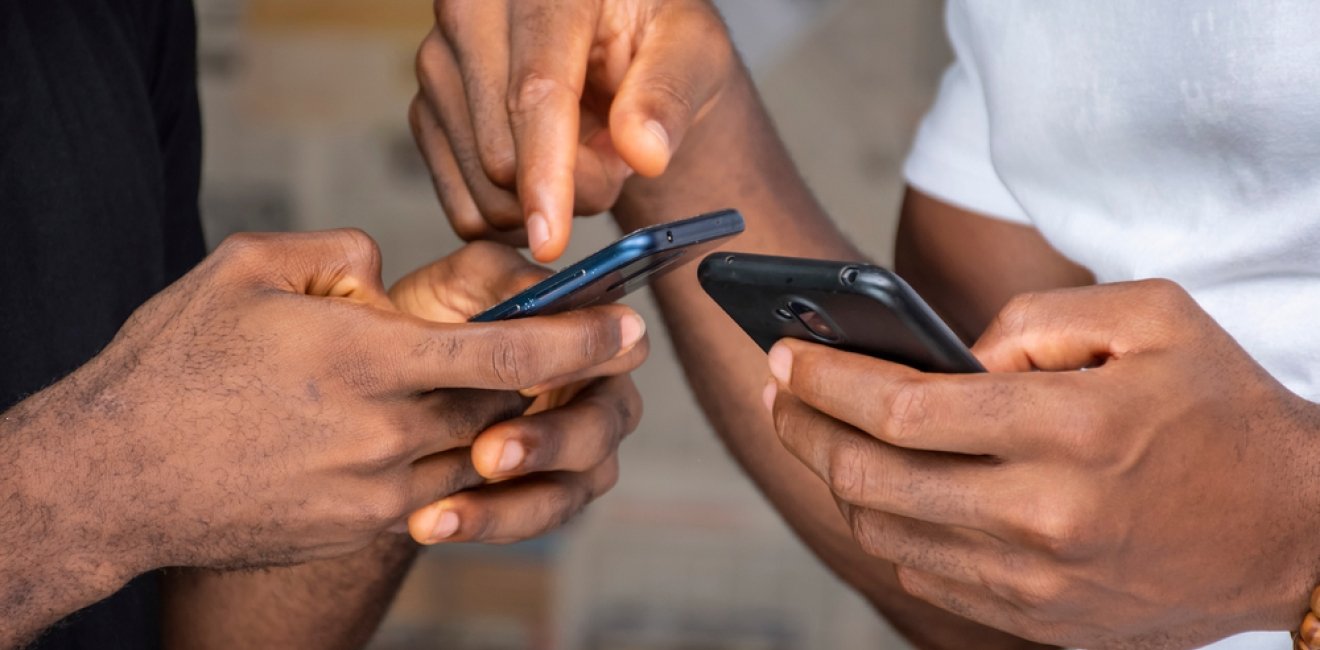
A blog of the Africa Program
Social Media and Post-Election Violence 2007-2022
Social media platforms have been seen both as a blessing and a curse for Kenya, a country that has a promising potential as one of the pillars of democracy in Africa but has often been haunted by electoral violence due to the attendant ethnic politics that obtain. “Elections are a big event that might destabilize all the peace infrastructure you've built. It might water down all the gains that you've made over the years.”[1] This remark, shared by an interviewee working on peacebuilding in Nairobi, captures the concern that election-related instability and violence will continue to impact Kenya’s peace and security. Presidential elections have had a tumultuous history in Kenya, particularly since the 2007 elections when ethnic tensions and political manipulations spurred the deadliest post-election violence in the country’s history.
Since 2007, Kenya has experienced more than a decade of democratic decay characterized by state-sponsored media crackdowns. Mainstream TV stations were switched off by the Communication Authority of Kenya in 2007 after deadly post-election violence incited by controversial presidential results and in 2017 to prevent Kenyans from watching live coverage of the swearing-in of the opposition leader after another contested presidential results declaration. Authorities cited security concerns to justify the moves, which curtailed the right of Kenyans to freely access information. Even though the 2017 ban was challenged in the High Court and revoked, the government ignored the ruling and continued to control the media, deepening the country’s electoral crisis by creating uncertainty about who won the elections.
Fraud, violence, human rights abuses, media closures, and intimidation of the judicial system has characterized Kenyan elections since the controversial 2007 elections. Despite this repression and abuse, social media in Kenya has proven to be a resilient “alternative medium for citizen communication and participatory journalism” with important implications for the democratization process in Kenya[2]going forward.
The implications of social media as a primary source of information in Kenya are twofold. First, the government’s repressive actions left Kenya in a volatile situation that threatened the country's democratic experiment by heightening dangerous speech and emotional ethnic discussions on social media in successive elections. Citizens embraced social media to get involved, particularly after violence erupted[3]and one can just picture the implications of careless citizen involvement on social media spaces in the context of political volatility. Social media is so critical for citizens to the extent that bloggers criticize state crackdown on social media spaces by blaming politicians for inciting ethnic hate speech in their remarks. Second, under the paradigm of “digital activists,” social media has continued to play a critical role in instances where citizen reporters present grassroots views more diverse than those emerging from mainstream commercial media therefore presenting an alternative voice.
Based on the experiences of these elections, this post contends that social media is a double-edged sword that can be used for peace and conflict. Since social media was used to incite hatred and violence during the 2007/8 2017 and 2022 elections, it is critical to explore attendant contextual dynamics that have influenced the use of social media to fuel electoral conflict in Kenya over the years. If this exploration is done, then the other good side of social media, which needs to be appraised, will be noted. In the latter, a rarity in scholarly literature, social media has opened space for citizen participation and engagement, but this space also faced challenges from the state. The State, threatened by the increased liberty of expression afforded through social media spaces, will therefore continue to monitor this liberal space and target it with blanket legislations in order to suppress opposition. The state has already done so through draconian laws such as the Computer Misuse and Cybercrime Bill, which has negatively impacted freedom of expression.
Social Media for Good?
Nevertheless, social media has presented an opportunity for Kenyans to vent frustrations about economic and electoral injustice and report and document electoral-related abuses and violence. Therefore, digital technologies through social media can lead to the development of people-centered early warning mechanisms in violence-prone elections, such as crowdsourcing to empower people and communities to respond to threats. In this regard, Kenyans utilized a wide variety of platforms for peacebuilding after successive election violence over the years: for example, in 2007 the Uwiano platform for peace Ushahidi; Facebook pages such as elections Witness Kenya and Umati or Crowd Monitoring Project; the Sentinel and iHub project in 2017 called Una Hakika, which is a mobile phone-based information service to monitor the spread of rumors and contain them are worth mentioning. In addition, Maskani invented in 2022 by Rongo University’s Center for Media, Democracy, Peace and Security, The Peacemaker Corps Foundation Kenya and Build Up is a social media intervention that uses youth micro-influencers to address political polarization online and offline. Further, social media has provided opportunities for online monitoring, SMS reporting, mapping violent incidences, and sharing experiences on electoral conflict at the grassroots level through Facebook,[4] which is all good. Other sites also allowed for the sharing of videos and information, that generated public attention towards preventive efforts by the government and other stakeholders.
While social media plays a beneficial role in mitigating election-related instability and violence, it is not a silver bullet and cannot solely ensure democratic transition. Social media should work in tandem with other offline interventions and other critical institutions for a smooth democratic transition. Other institutions equally have a vital role to play in supporting democratic transition and consolidation and it is recommended that critical institutions such as the Independent Electoral Boundaries Commission (IEBC), the judiciary, the National Police Service, the National Cohesion and Integration Commission, Kenya’s National Human Rights Commission, National Church Council of Kenya and others should take advantage of the democratic space created by social media platforms to midwife peaceful democratic transitions through elections going forward. The latter would ensure peaceful elections that would guarantee Kenya its well-deserved position as shining example of democracy in Africa.
NOTE: This blog has been updated from its original version which was published on April 23rd, 2024.
[1] Peacebuilder, interview, June 2022, Nairobi, KE
[2] Makinen, M. and Kuira, M. 2008. Social Media and Post Elections Crisis in Kenya. Information and Communications Technology Africa 13
[3] Ibid
[4] Mutahi, P. and Kimari, B. 2017. The Impact of Social Media and Digital Tech on Electoral Violence in Kenya. IDS Working Paper Vol. 2017 No 493
Author

Associate Professor of Media and Security Studies, Rongo University and Founding Director, Center for Media, Democracy, Peace & Security (CMDPS).

Africa Program
The Africa Program works to address the most critical issues facing Africa and US-Africa relations, build mutually beneficial US-Africa relations, and enhance knowledge and understanding about Africa in the United States. The Program achieves its mission through in-depth research and analyses, public discussion, working groups, and briefings that bring together policymakers, practitioners, and subject matter experts to analyze and offer practical options for tackling key challenges in Africa and in US-Africa relations. Read more

Explore More in Africa Up Close
Browse Africa Up Close
The Innovative Landscape of African Sovereign Wealth Funds



